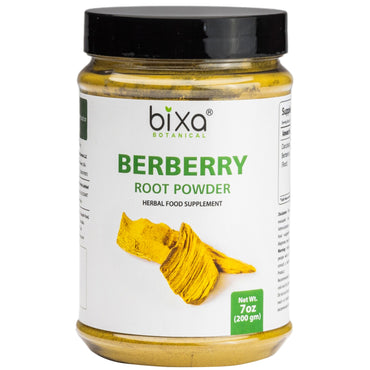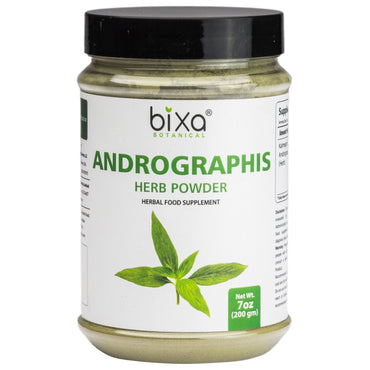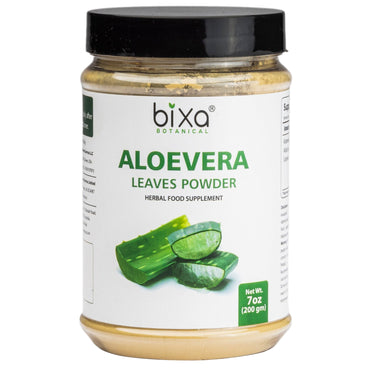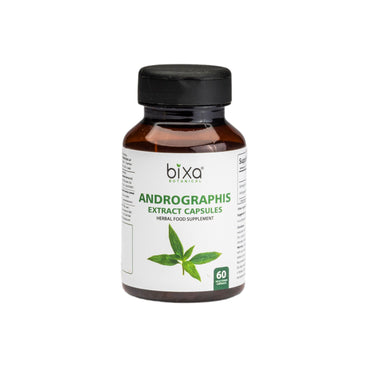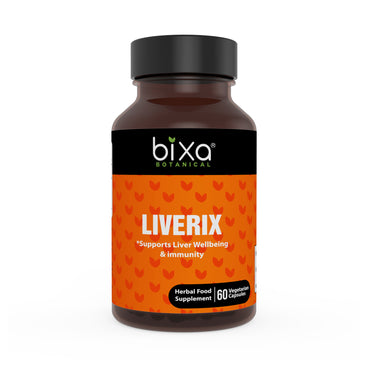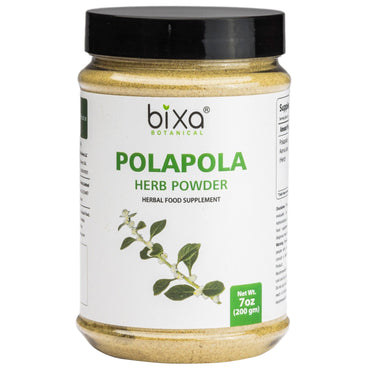
$26.99 USD
$14.99 USD
Supports Healthy Liver & Kidney Functions Promotes Cardio-vascular health & blood circulation Supports overall immunity of the body Supports sugar metabolism and good skin health Daruharidra [Botanical name- Berberis aristata] also known as Indian barberry or tree turmeric is a shrub belonging to the genus Berberis. The genus comprises approximately 450-500 species of deciduous evergreen shrubs and is found in the temperate and sub-tropical regions of Asia, Europe, and America. Daruharidra is native to the Himalayas in India (especially in kumaon & chamba region), in Nepal and is also naturally found in the wet zone of Sri Lanka. The Daruharidra is also widely distributed in Nilgiris hills in south india. In Ayurvedic texts Daruharidra is mentioned to be useful as bitter tonic, digestive, pacifies liver & spleen swelling, as fever reducing agent, improves blood circulation and supports skin health. Ayurveda says the qualities and medicinal uses of Daruharidra are very...
Supports Healthy Liver & Kidney Functions Promotes Cardio-vascular health & blood circulation Supports overall immunity of the body Supports sugar...
$14.99 USD
$14.99 USD
Supports as Natural Liver Tonic It contains Bitters useful to increase immunity against various infections Supports as removal of toxins and purification of liver tissuesAndrographolide present is useful as anti-inflammation and to reduce bodyache Supports Low Blood glucose & Blood purifications. Kalmegh Or Andrographis Paniculata is a very important medicinal plant of traditional medicine system. Kalmegh is found growing wild throughout the plains and hills of tropical India, from Uttar Pradesh to Kerala, and also in Bangladesh, Pakistan and all South East Asian countries. All part of plant is extremely bitter due to which plant is known as “King of bitter”. This plant is called Hempedu Bumi (meaning bile of earth) in Malaysia. In Ayurveda Kalmegh is used in various ailments related vitiated Pitta/ Kapha in Liver, Skin and Intestine. As per Ayurvedic principle excess Pitta cause disturbance in liver enzymes, which leads to inflammation in cells & thus viral...
Supports as Natural Liver Tonic It contains Bitters useful to increase immunity against various infections Supports as removal of toxins...
$19.99 USD
Promotes Digestion & Liver functions Supports Intestinal health & removal of toxic elements Supports healthy menstrual flow in women Supports skin purification & general nourishment Aloevera / gwarpatha/ Kumari/ ghritkumari [Botanical name: Aloe barbadensis] is a stem-less or very short-stemmed plant growing to 60–100 cm (24–39 in) tall, spreading by offsets. Kumari is cultivated throughout India in many varieties some of which run wild as on the coasts of Bombay, Gujarat & south india. The leaves of Aloe vera are succulent, erect, and form a dense rosette. Many medicinal uses are made of the gel obtained from the plant's leaves. Aloe vera has been the subject of much scientific study over the last few years, regarding several claimed therapeutic properties. As per Ayurveda Aloe vera is bitter- sweet in taste, coolant, helps in clearing the bowels. Ayurveda mentions Kumari as Rejuvenating tonic, supports skin wellness and healthy liver’s metabolic activity....
Promotes Digestion & Liver functions Supports Intestinal health & removal of toxic elements Supports healthy menstrual flow in women Supports...
$26.99 USD
Supports as Natural Liver Tonic. It contains Bitters useful to increase immunity against various infections Useful to digest toxins and purify liver tissues Andrographolide present is useful as anti-inflammation and to reduce bodyache Lab tested for quality, Non-GMO, vegan & gluten free Kalmegh Or Andrographis Paniculata is a very important medicinal plant of traditional medicine system. Kalmegh is found growing wild throughout the plains and hills of tropical India, from Uttar Pradesh to Kerala, and also in Bangladesh, Pakistan and all South East Asian countries. All part of plant is extremely bitter due to which plant is known as “King of bitter”. This plant is called Hempedu Bumi (meaning bile of earth) in Malaysia. In Ayurveda Kalmegh is used in various ailments related vitiated Pitta/ Kapha in Liver, Skin and Intestine. As per Ayurvedic principle excess Pitta cause disturbance in liver enzymes, which leads to inflammation in cells & thus...
Supports as Natural Liver Tonic. It contains Bitters useful to increase immunity against various infections Useful to digest toxins and...
$14.99 USD
Supports Liver Wellbeing & Immunity Supports reduction of inflammation in the Liver cells. Promotes reduction of Viral Load in Liver. Supports healthy Bile flow & as anti-oxidant. This above formulation has been made after doing thorough research of Ayurvedic ancient texts and Scientific studies using active principles in herbs. The permutation and combination of these Standardised Herbal Extracts have been done keeping in mind efficacy and safety of formulation. The combinations of extracts act on well being of hepatic or liver cells, reducing inflammation and cleansing its channels. The Bitters (Phyllanthin) and Lignans contained in Extract of Bhumyamlaki helps to reduce toxicity in liver with anti-oxidant activity. Kutaki is main ingredient to protect Liver cells, removes toxicity from stomach & Liver by making the stools loose. Kutaki Extract contains Bitter glycoside which helps to reduce viral attack and improve Liver functions. Guduchi extract helps to retain immunity, improve glucose metabolism...
Supports Liver Wellbeing & Immunity Supports reduction of inflammation in the Liver cells. Promotes reduction of Viral Load in Liver....
$26.99 USD
Supports healthy liver functions Promotes natural & safe antioxidant response Promotes relief from cough & sore throat Supports lower blood glucose & lipid levels Polpola or Polapola [ Botanical Name - Aerva lanata] also known as mountain knotgrass is a woody, prostrate or succulent, perennial herb in the Amaranthaceae family, native to Asia, Africa. Polpola is a common weed which grows wild everywhere in the plains of India. The root when rubbed emits camphor like aroma. The dried flowers which look like soft spikes are sold under the commercial names Buikallan and Boor. Aerva lanata is one of the plants included in Dasapushpam, the ten sacred flowers of Kerala. Polapola plant is supposed to be used for food for people and animals. The whole plant, especially the leaves, is edible. The leaves are put into soup or eaten as spinach or as a vegetable. Polpola plant provides grazing for...
Supports healthy liver functions Promotes natural & safe antioxidant response Promotes relief from cough & sore throat Supports lower blood...
-
Previous
- Page 1 of 1
-
Next
Description
LIVER WELLNESS
Our liver is an very important natural organ that performs many important functions. It’s one of the most important organs within the body and is situated underneath our rib cage on the top right side. It weighs about three kilos and is formed like a soccer ball that's flat on one side, with 2 lobes. The liver processes everything we eat, drink, breathe, and take up by means of our pores and skin. It helps to fabricate hormones, proteins, and enzymes our body makes use of to perform and battle off illness. It turns important nutrients into energy which our body can use and removes dangerous substances out of our blood, it's rightly referred to as Power Home of Body.
Consuming a nutritious diet helps the liver carry out its function effectively and successfully. Conversely, consuming an unhealthy eating regimen can result in liver illness. For instance, an individual with unhealthy consuming habits is at increased danger of being overweight and having a fatty liver illness. Fatty liver, characterized by an extreme accumulation of fats inside liver cells, makes it tougher for the liver to perform and may ultimately result in scarring of the liver.
The liver breaks down alcohol so it may be eradicated from the body. A number of the by-products of this course are poisonous chemical compounds that, if in excess can injure liver cells. Ingesting an excessive amount of alcohol, both on a single event – generally known as binge ingesting – or ingesting rather a lot over time, can take a critical toll on our liver. Liver harm can result in the build-up of fats in the liver (fatty liver), swelling or irritation of the liver (alcoholic hepatitis), and/or extreme scarring of the liver (cirrhosis).
DO’S & DO NOT’S FOR LIVER WELLNESS:
How can I maintain a healthy liver? There are a variety of steps you can take to keep up the well-being of your liver. They embody: consuming a nutritious diet, limiting the quantity of alcohol you drink, appropriately managing your medicines, avoiding inhaling or touching poisonous substances.How does a nutritious diet assist my liver? What constitutes a nutritious diet? To eat a nutritious diet, take note of these suggestions when planning your meals: Design a food plan that accommodates wholesome quantities of protein, carbohydrates, and fat present in fish, meat, dairy, greens, grains, fruits, and oils. Eat meals that have a variety of fiber, akin to seasonal fresh fruits, greens, beans, and whole-grain bread, rice, and cereals. Restrict meals that are excessive in saturated fat, that are strong at room temperature, like butter, stick margarine, and deep-fried meals objects. Restrict processed, canned meals and those which have a large quantities of sugar or salt.
Why is managing my medications essential to my liver’s well being? Keep in mind that your liver processes everything you eat, drink, breathe, and soak up via your pores and skin. This contains all of the medicines you are taking: over-the-counter drugs, prescription drugs, nutritional vitamins, and dietary supplements. When medicines are taken incorrectly — by taking an excessive amount of or not taking within the advisable dosage, taking the mistaken sort, or by mixing them — your liver may be harmed.
How can anything I inhale or contact have an effect on my liver? Since your liver processes what you breathe and take in by way of your skin, toxins contained in cleansing items, aerosol sprays, pesticides, and different chemical compounds can have an effect on the well being of your liver. Comply with instructions fastidiously when utilizing these merchandise to restrict your exposure to toxins. Many of those items ought to be utilized in a well-ventilated room to restrict how it is inhaled. As well as, gloves ought to be worn in places indicated so that the substance don't come into contact with your skin.
FAQ's
Q. What are Herbal powders?
The useful part of Herbs or medicinal plants is selected, dried, powdered & sieved to 40 or 60 mesh. They can be easily stored and transported.
Q. How effective are Herbal Powders?
They are very effective and fast-acting if taken as recommended for a particular illness and incorrect dosage, as suggested by a health practitioner. The result may be seen within 5-7 days.
Q. What is the Shelf life of Herbal Powders?
Generally dried powdered herbs if stored properly never get spoiled or damaged. They may be less effective after 5 years of manufacturing.
Q. What is the importance of Herbal medicines?
Herbal medicines are derived from Natural, Pure Herbs with Natural origin. They work as per their content of natural, pure Bio-active substances (Glucosides), which are not chemicals and not artificially induced! Hence no side effects of Herbal Medicines, if taken in the recommended dosage and for specific illnesses, Like – Kalmegh Powder very good for Liver cells protection.
Q. Can you make tea from powdered herbs?
Teas can be made by pouring 1 cup of boiling water over 1–2 teaspoons of dried herbs. Cover and let the tea steep for 5 minutes or so (roots and bark take longer). Then filter or decant the upper Tea solution and drink.
Q. How you can say, Your Liver is Healthy?
If you have a regular appetite, good digestive functions, adequate motions in the morning, and energy, then we can feel that the Liver is Healthy!
Q. How can judge that your Liver is not working properly?
If you have a low appetite, weak digestion, loose motions or constipation, yellowish tincture to every urination, yellowish eyes, overall lethargy, weight loss – are the signs that you should go for Liver Check!
Q. How to detox your Liver?
Eat freshly cooked food, avoid oily, spicy, pungent, canned food items. Avoid Binge eating or junk food, late-night parties. Have a clean Bowl, regular timings for food, and boiled water. Reduce Alcohol, Nicotine, smoking, pollutions.
Are Q. Herbs good for the Liver?
Andrographis(Kalmegh), Aloe vera, Berberry, Polapola, Tinospora, Phyllanthus


